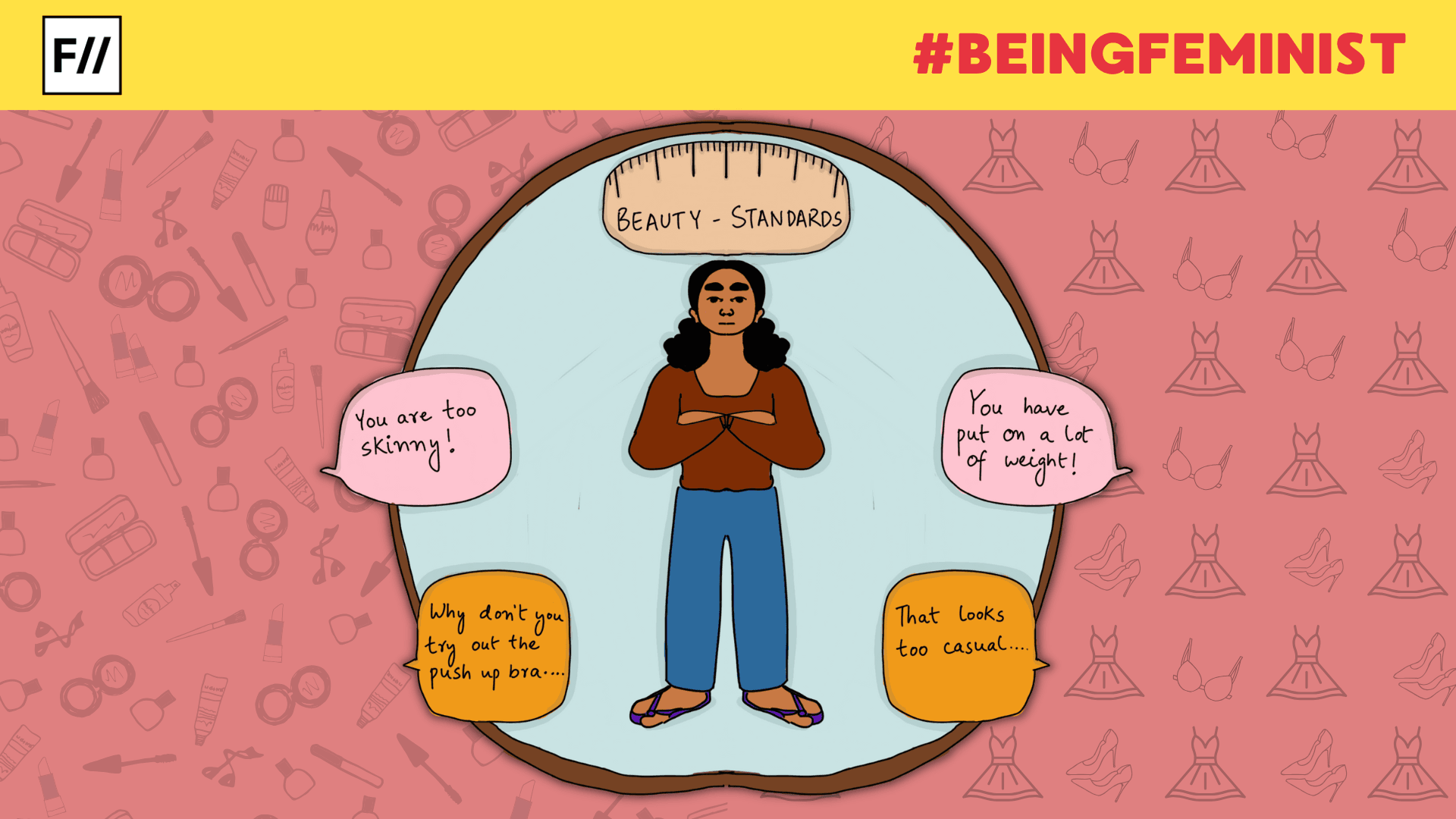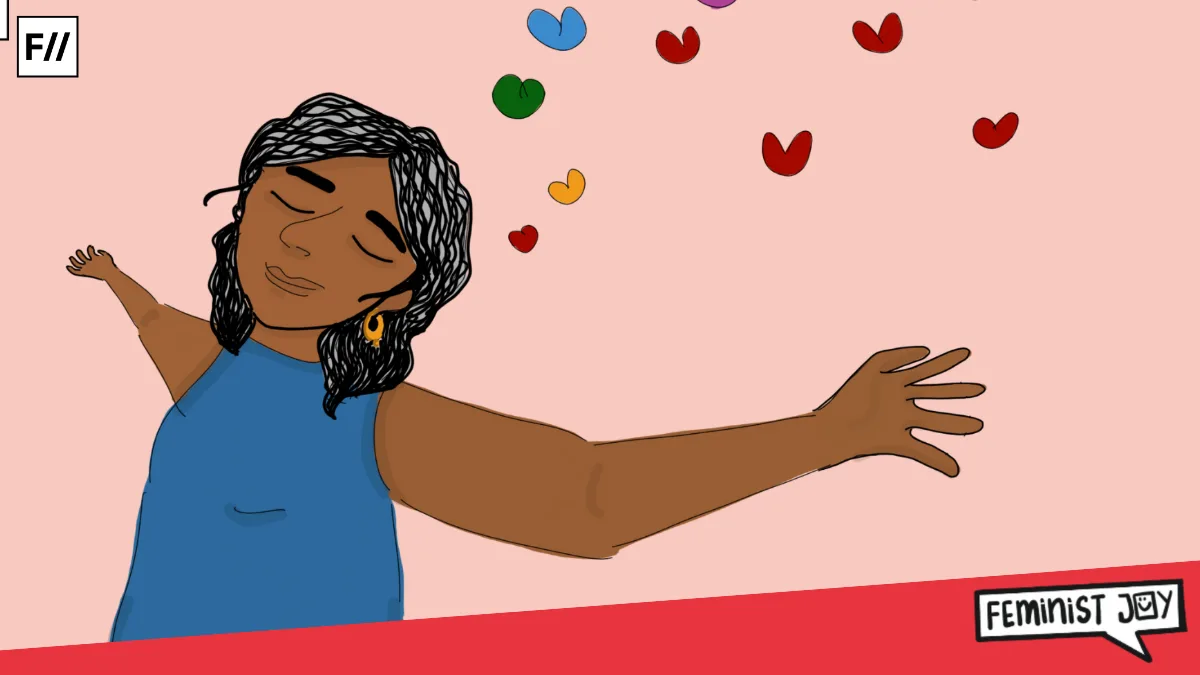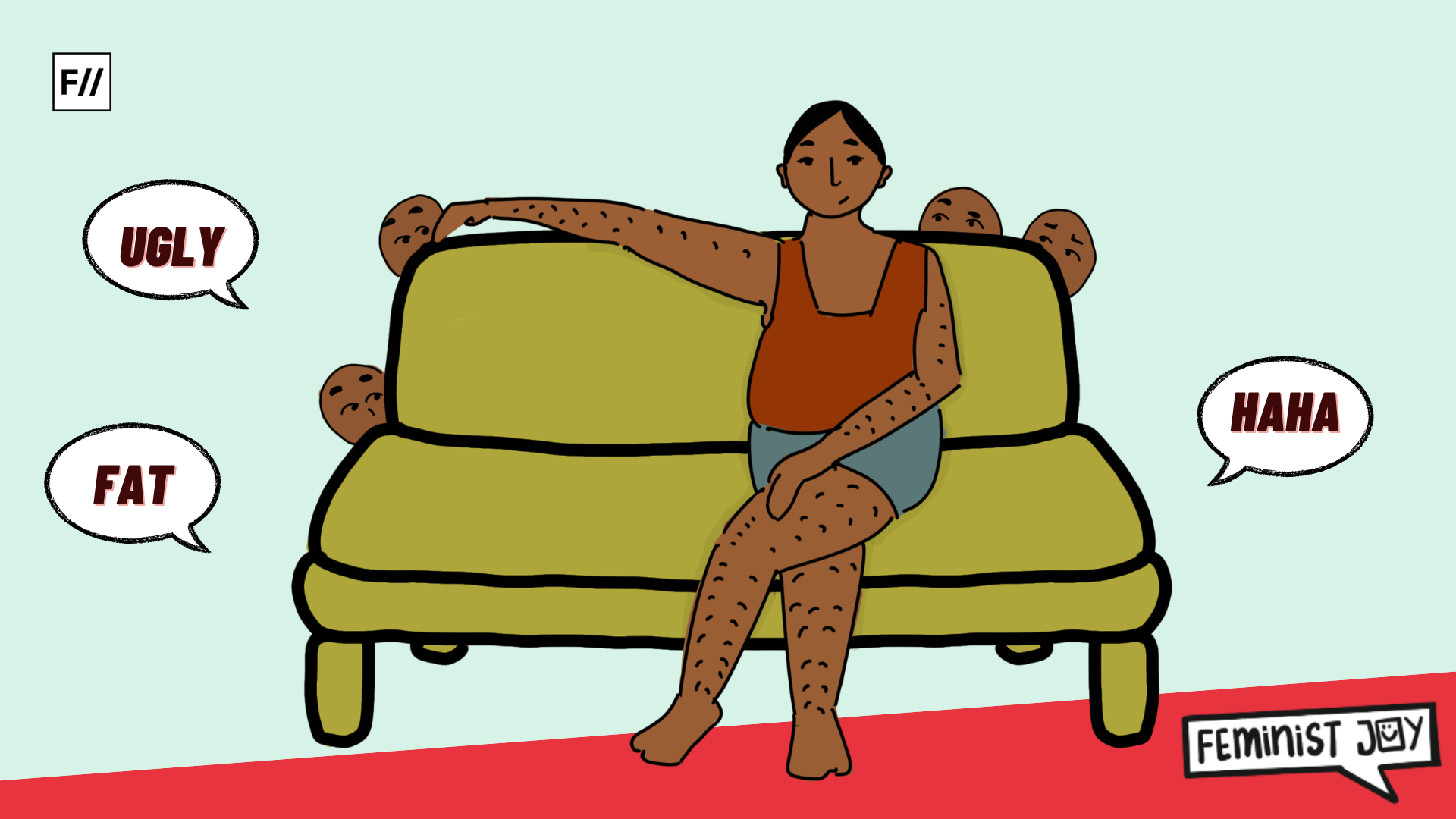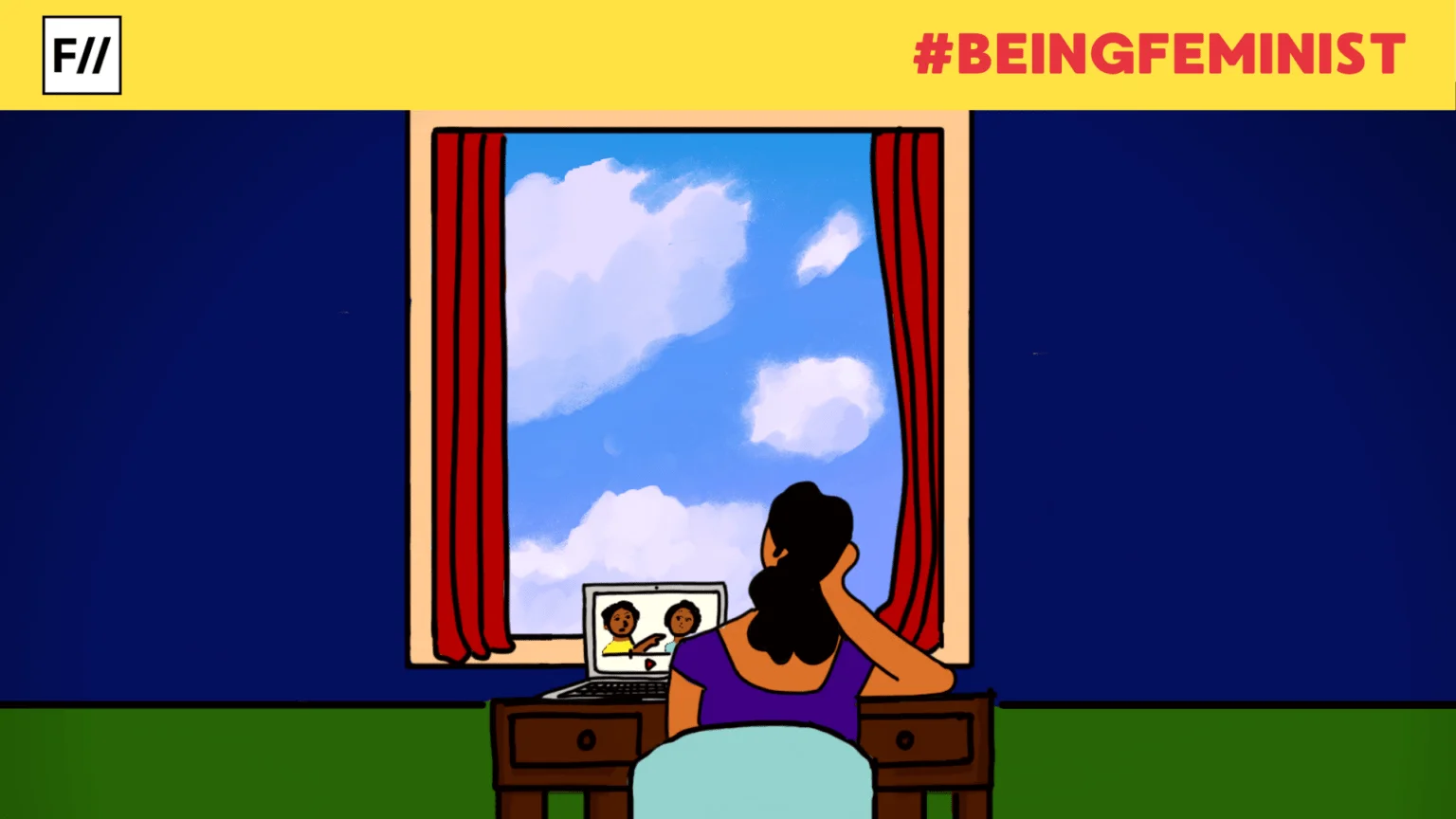As a feminist, I have been taught to push back against beauty standards and to recognise them not as harmless ideals but as tools of control meant to keep women compliant. I understand the theory: beauty norms are designed to shrink us, to chip away at our self-worth in service of a patriarchal order. I’ve underlined the texts, reposted the infographics, and told friends (and myself) that our value isn’t rooted in how we look. And yet my reflection still lingers longer than it should. I know better. But that doesn’t erase the years of conditioning and adhering to society’s beauty standards. It doesn’t quiet the tug-of-war between what I believe and what I’ve absorbed. It doesn’t make me immune to a standard I never chose, but I still measure my worth against it somehow.
The desire to be noticed isn’t inherently wrong; it’s human. But it becomes painful when that visibility is tied to beauty, when our worth is measured against standards we didn’t choose.
It usually starts when I am tired at night and doom-scrolling without thinking—a few minutes on Instagram before sleeping that turn into hours. But suddenly I’m surrounded by perfect faces, perfect bodies that look effortless, polished, and flawless. I pause at the glossy skin, the sharp jawlines, the hair that falls just right, and I start comparing myself to them. A girl from college posts a picture in a beautiful dress—she’s glowing, confident, stunning—and she gets 100 likes in ten minutes. How is that possible? I stare longer than I should, wondering if I’ll ever look that put-together, ever feel like that, ever be seen like that. It’s not envy exactly. It’s a sinking feeling like I’m quietly disappearing while everyone else is being seen. And I know the pictures are filtered, edited, posed, but knowing doesn’t silence the little voice in my head that keeps whispering: You’re not enough.
Beauty as a Silent Betrayal
Beauty standards do not exist outside of us. They have been internalised for so long and so deeply that they have become invisible. We act on them without even thinking—from choosing clothes to our daily beauty routines, to the way we show ourselves in social places. The silent betrayal is pervasive. The media tells us that we must constantly strive to look a certain way. But it does go beyond external influence. It’s a daily negotiation with ourselves. Should I wear that dress? Should I wear those shoes? Do I look good enough? Am I allowed to take up space today? The body is not just a vessel, but a site of constant evaluation that one has to go through every day. And even as I tell myself that my worth is not just tied to my appearance, I so heavily feel the weight of these invisible pressures quietly pulling me toward a version of myself that’s easier to accept.
Being a feminist doesn’t mean breaking free from every internalised norm right away or silencing every insecurity. It does mean acknowledging them, understanding their roots, and choosing to be kind to myself despite them.
The feminist discourse has given me the language to critique beauty standards, to unpack the systems that dictate and tell women how they should look. I can talk about the male gaze, objectification, and the capitalistic beauty culture until I’ve said it all. Language is one thing, but the feeling is another. Theory and practice are not the same. When I look in the mirror, my critical thoughts don’t always match the insecurity I feel. I can intellectually understand that beauty is constructed and unfairly rewarded, but when I see a woman whose features fit the idealised mould, I still feel the weight of comparison. It’s a cognitive dissonance that often leaves me feeling guilty and drained. The language never stopped the emotion. The feminist in me knows the truth, but the human in me still reacts.
When Critique Feels Like Hypocrisy
There are days when I can critique beauty politics, norms, and standards confidently, and then spend half an hour trying to fit into the very same standards I was critiquing. Days when I speak about rejecting Eurocentric ideals, but I still catch myself measuring beauty through their lens. This hypocrisy isn’t loud, but it lingers like a contradiction I carry in both my body and my mind. And I hate that it makes me feel like a fraud. But maybe it’s not hypocrisy. Maybe it’s the result of years of conditioning—lessons learned in childhood and quietly reinforced by everything around me. It’s the cost of existing in a world where how you look often decides how much space you are allowed to take. I try not to judge myself, but the guilt is real. The shame of knowing better, yet still wanting to belong, stays with me.
This is perhaps the hardest contradiction for me to face—wanting to be seen and noticed, even as a feminist. I believe in independence, autonomy, and the rejection of external validation. But there are moments when I feel invisible. When I see other women being praised for their beauty, I catch myself wondering: Would that kind of praise ever be meant for me? And then comes the guilt for wanting it. There’s a desire not just to be seen, but to be validated in ways that contradict my values. The desire to be noticed isn’t inherently wrong; it’s human. But it becomes painful when that visibility is tied to beauty, when our worth is measured against standards we didn’t choose. The truth is, I want to be celebrated for who I am—all of who I am. But sometimes I forget that I don’t need to fit someone else’s image to deserve recognition, or that I don’t need to meet beauty standards to actually feel beautiful.
The Contradiction That Needs Compassion
This contradiction is not just real—it’s relentless. It lives in the quiet moments and loud ones, in the mirror and in my mind. But that’s okay. Being a feminist doesn’t mean breaking free from every internalised norm right away or silencing every insecurity. It does mean acknowledging them, understanding their roots, and choosing to be kind to myself despite them. The struggle to break free from these beauty standards is never going to be linear. It’s messy, contradictory, and might be filled with setbacks.
The contradictions I live with might never vanish, but acknowledging them is my act of resistance. The fight isn’t about perfection, but constantly evolving in a world that tries to shrink me.
But I will not let that contradiction silence me. I will not wait to be flawless before I speak. There is room for imperfection in this fight. There is room for wanting and questioning at the same time. And maybe that’s what makes it powerful—choosing to resist, even while you’re still unlearning.
About the author(s)
Juhi Sanduja is an Editorial Intern at Feminism In India (FII). She is passionate about intersectional feminism, with a keen interest in documenting resistance, feminist histories, and questions of identity. She previously interned at the Centre of Policy Research and Governance (CPRG), Delhi, as a Research Intern. Currently studying English Literature and French, she is particularly interested in how feminist thought can inform public policy and drive social change.





